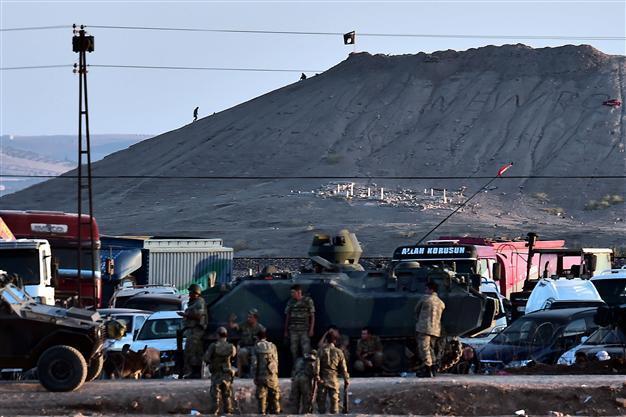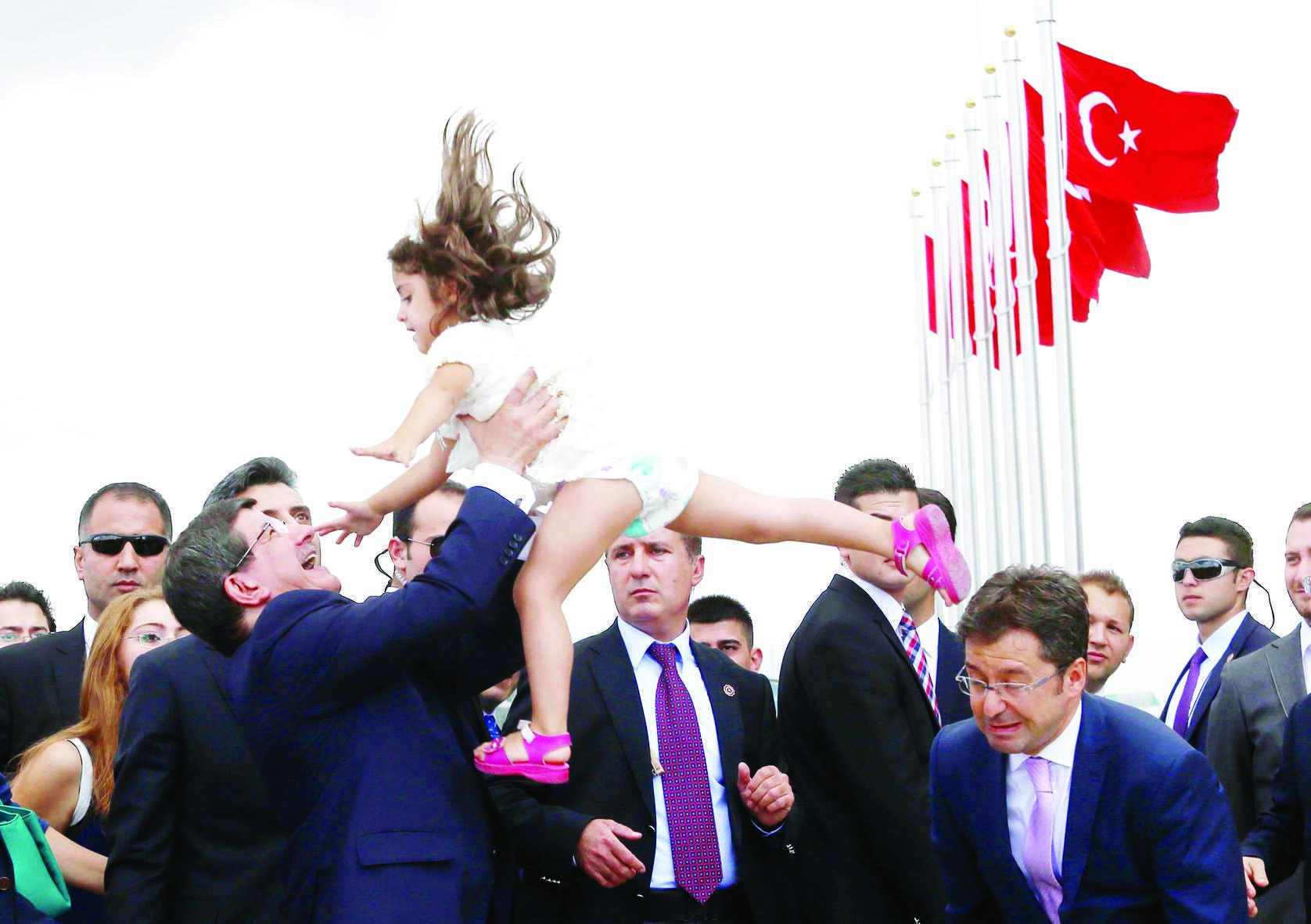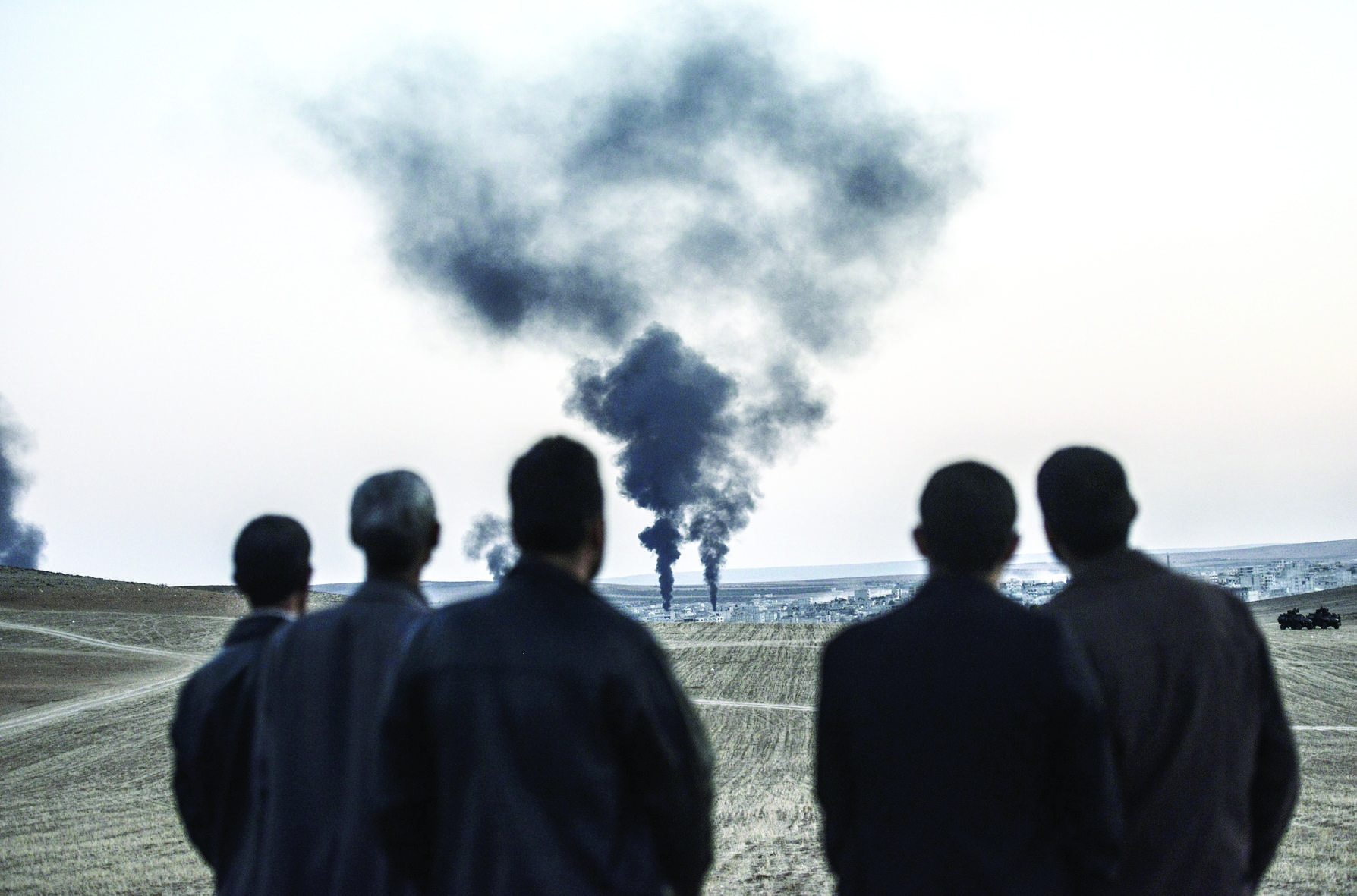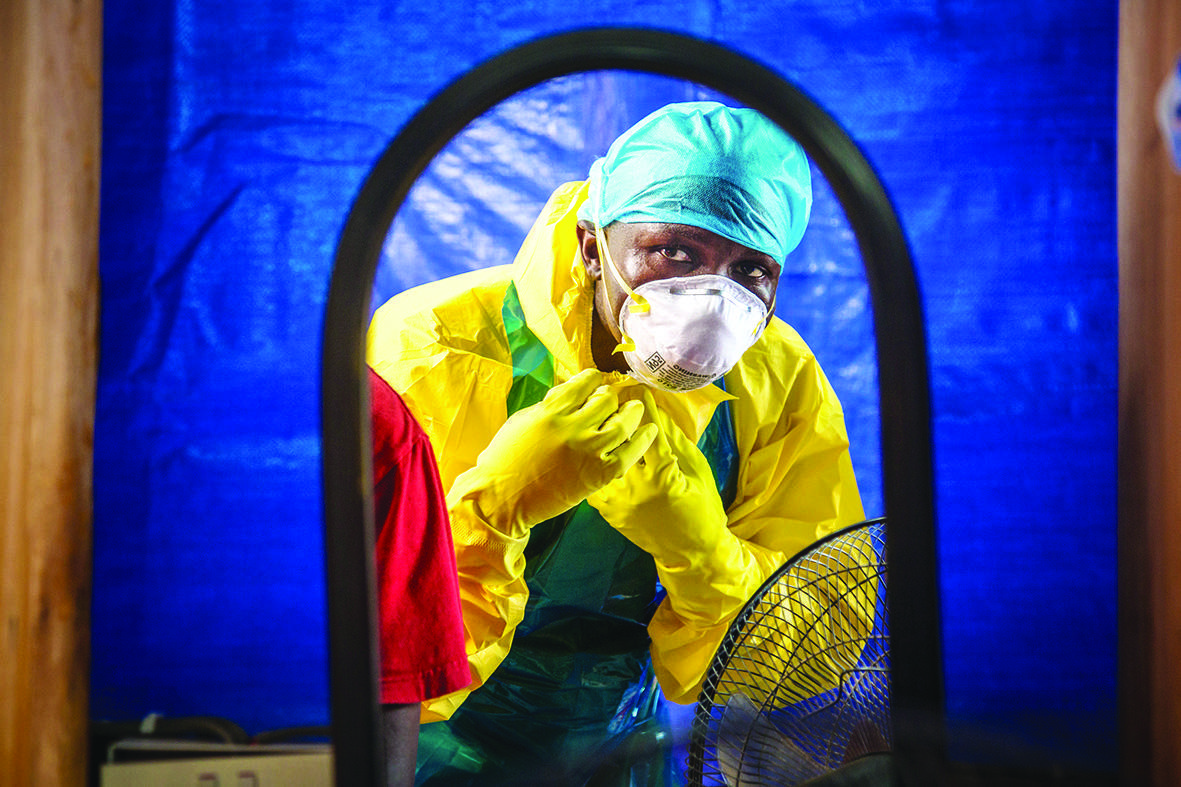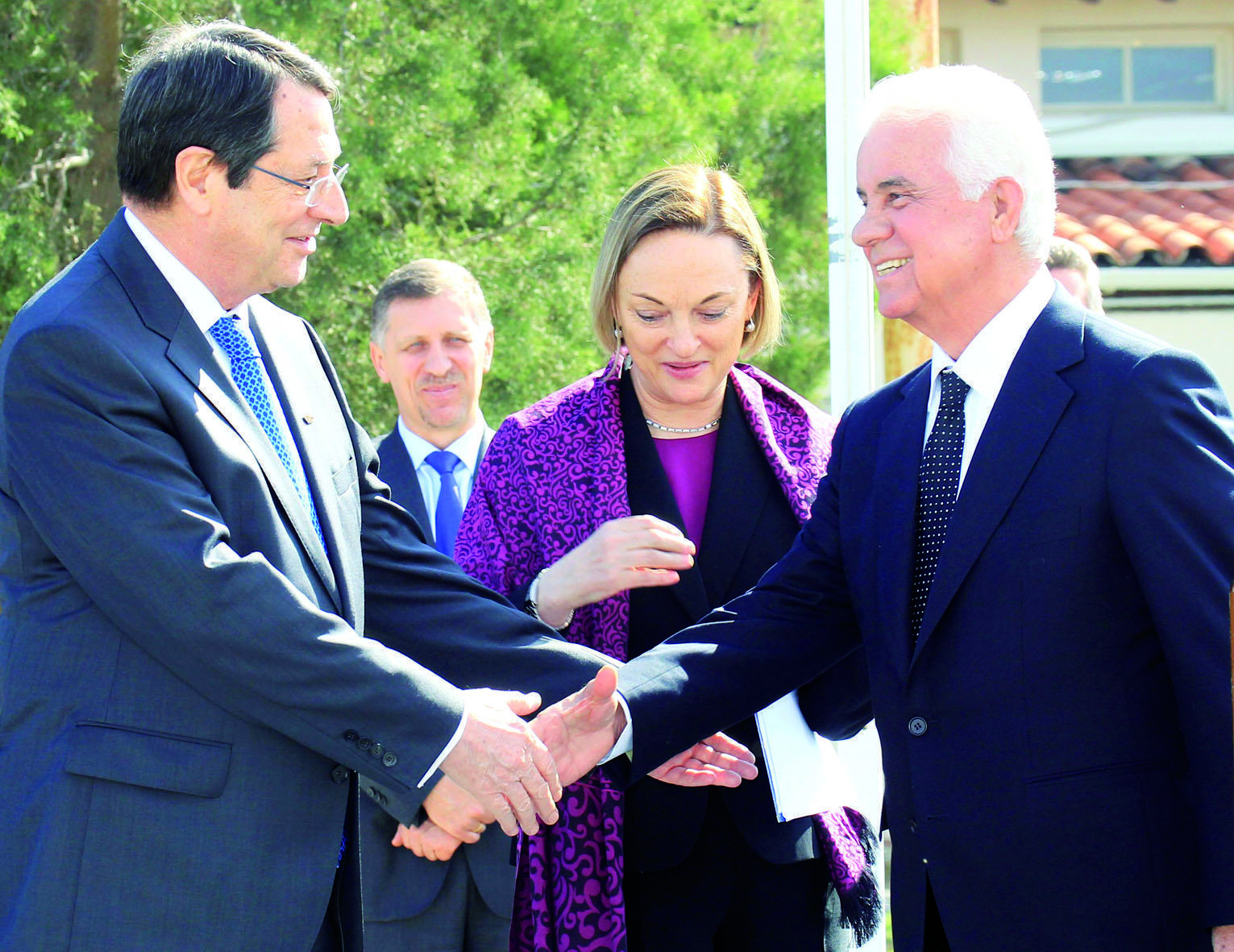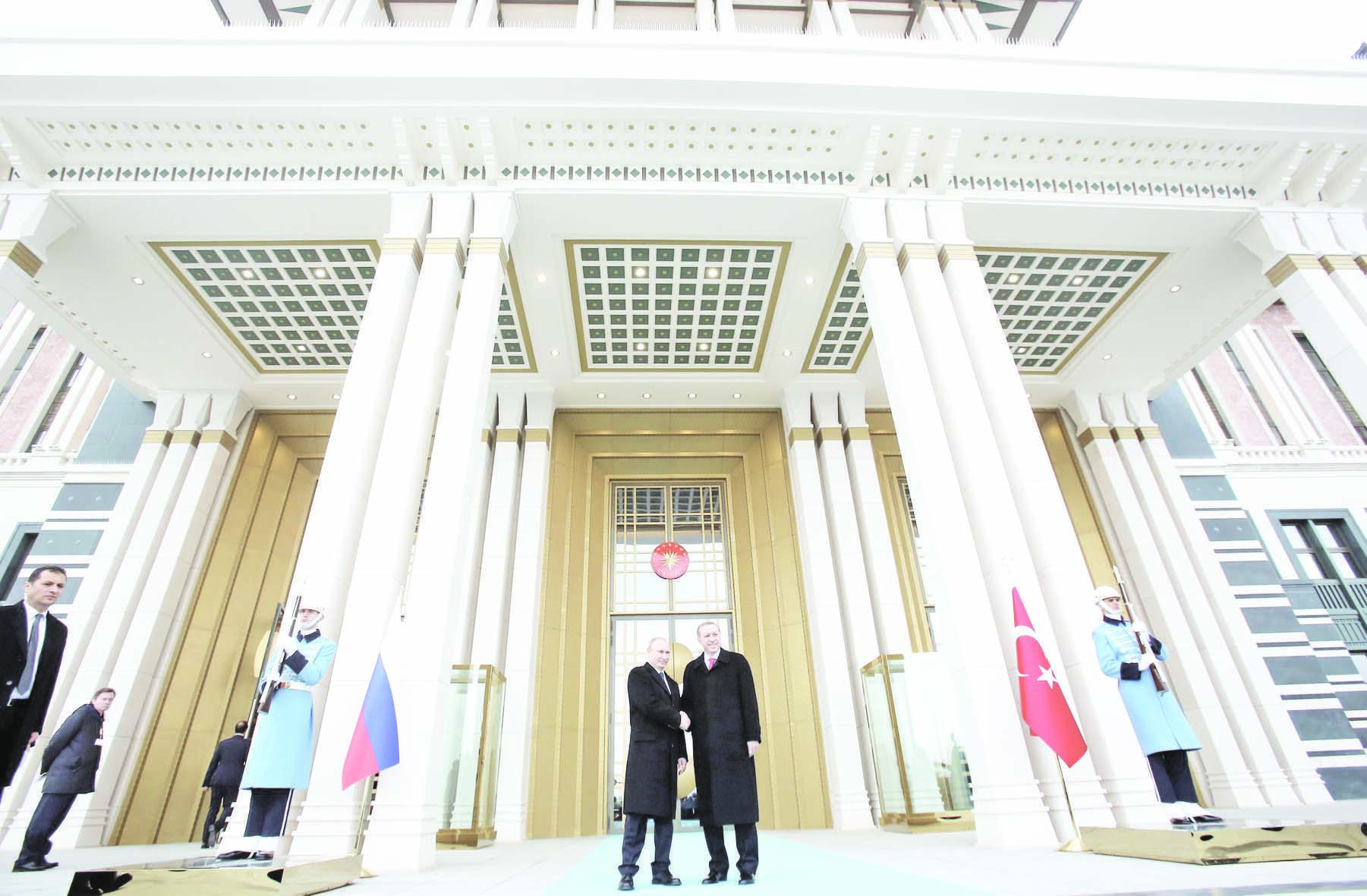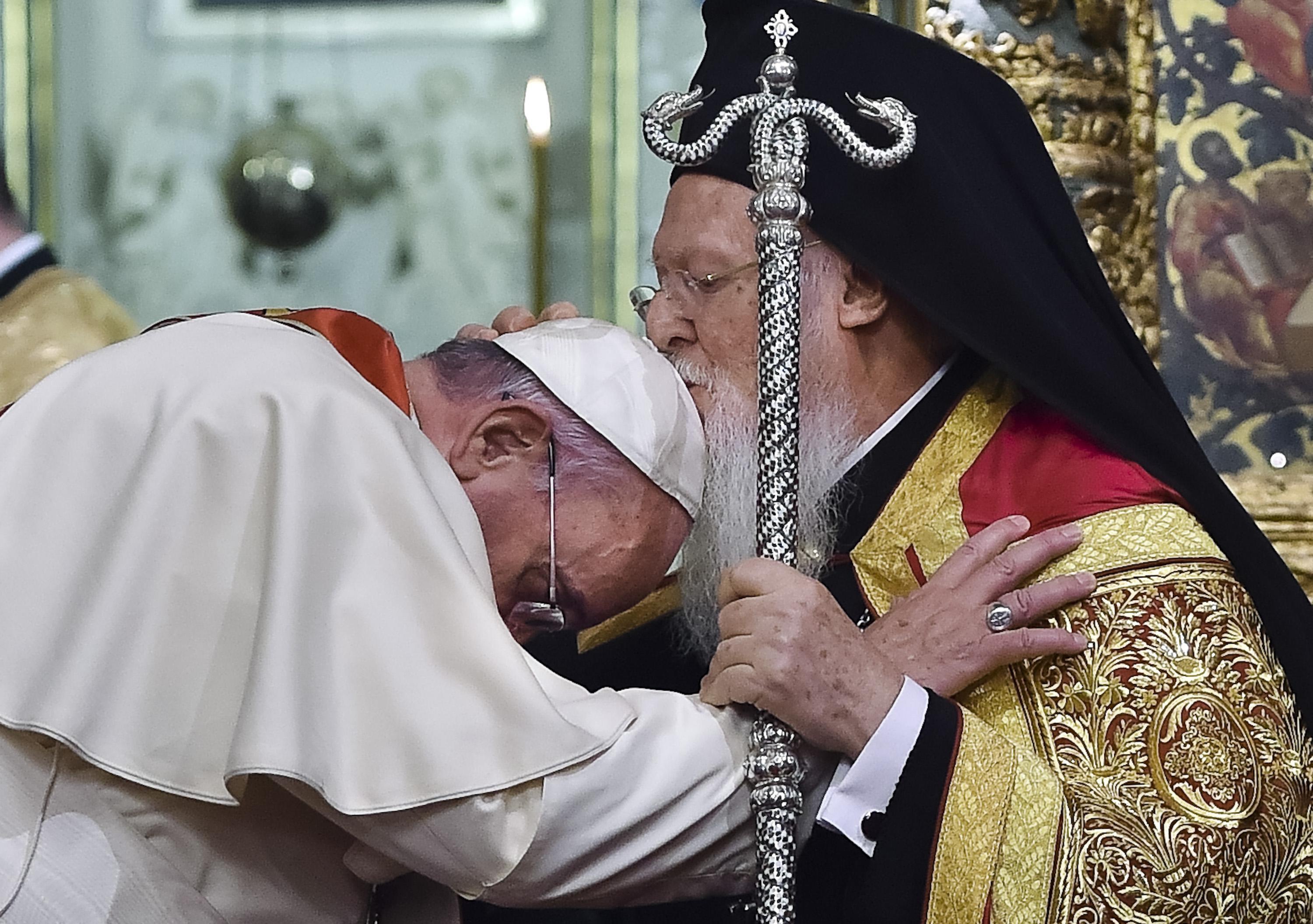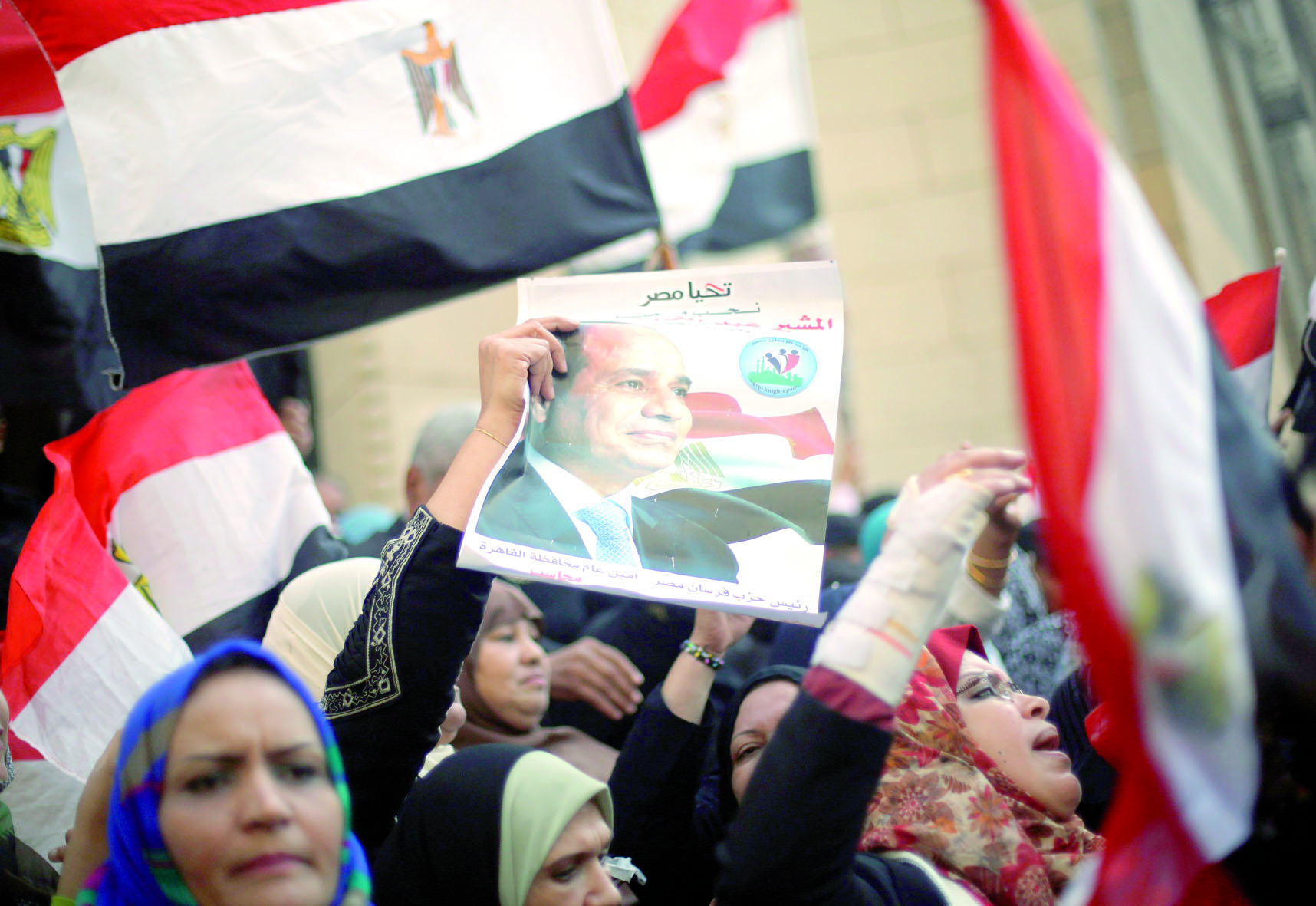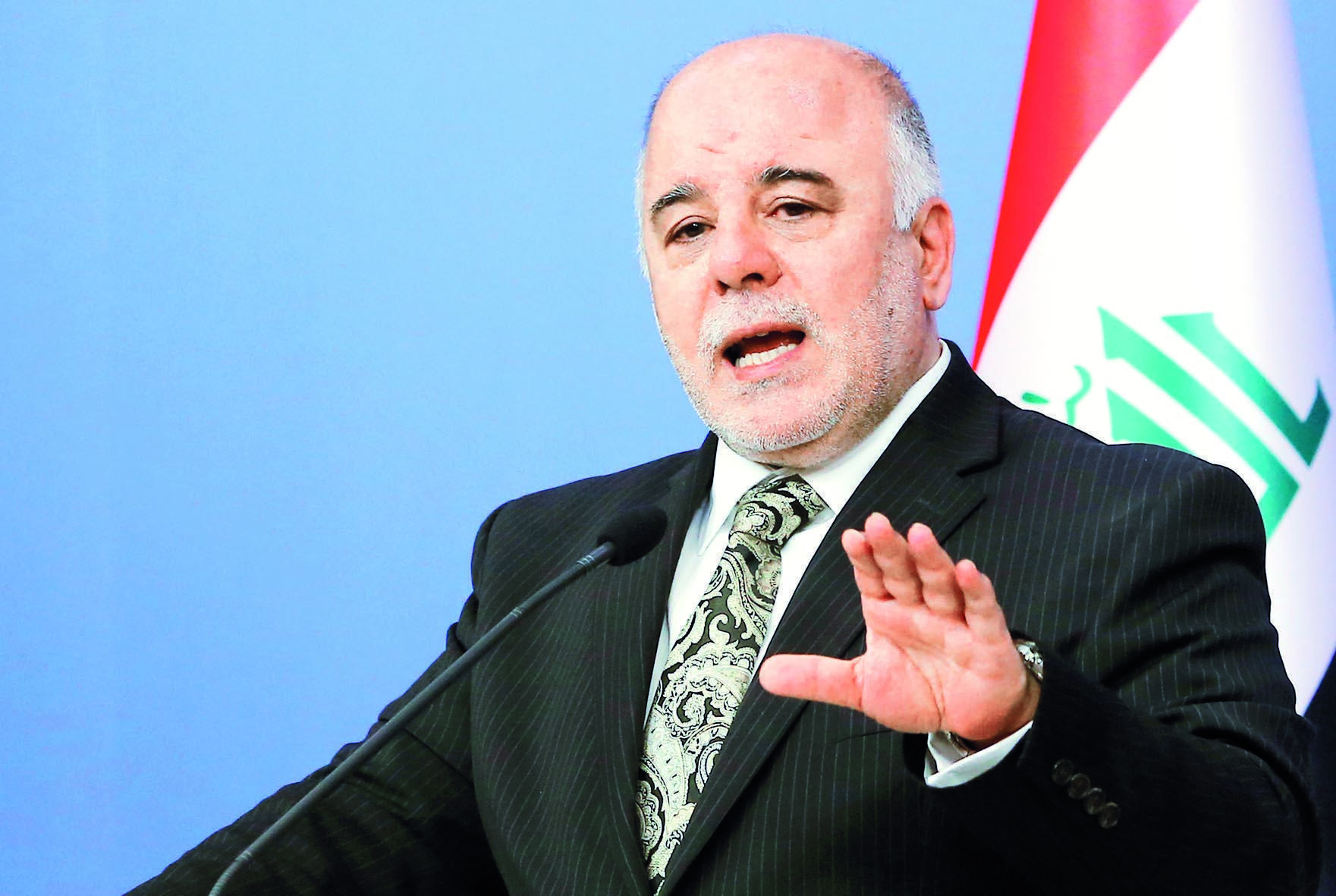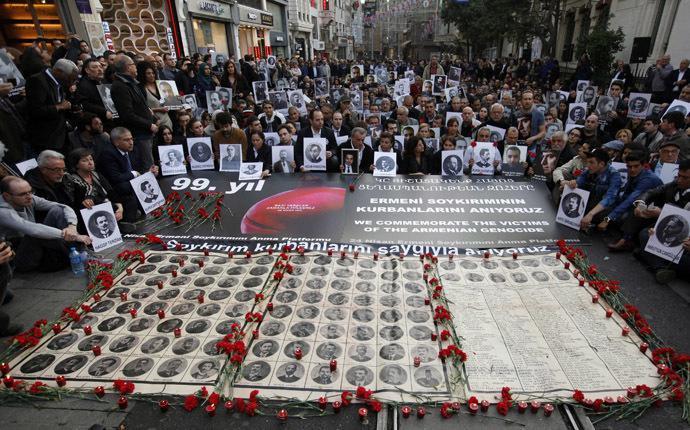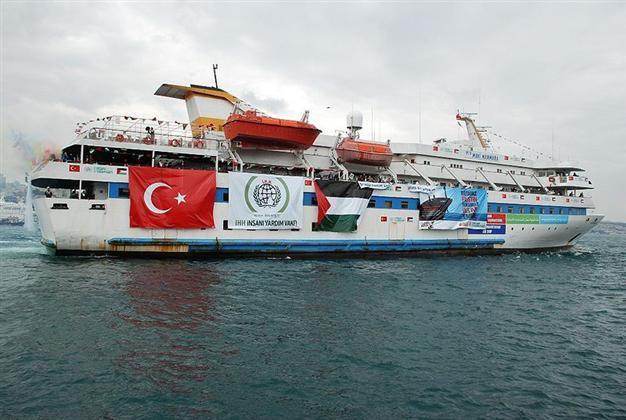Syrian issue dominates Turkish foreign policy in 2014
Sevil Erkuş - sevil.kucukkosum@hdn.com.tr

2014 was marked by the rise of the Islamic State in Iraq and the Levant (ISIL) and the jihadist group's siege of the northern Syrian town of Kobane. AFP Photo
As 2014 continued with instability in the Middle East, Turkey remained surrounded by tensions in the region. Turkey remained embroiled in frozen conflicts with Israel, Egypt and Syria, while opening a new page with the new administration in Iraq. The Islamic State of Iraq and the Levant (ISIL) kept 49 members of the Turkish Consulate in Mosul hostage for nearly three months, while Ankara struggled to manage its policies amid fears that the ISIL threat could spill over its borders. Turkey attempted to deal with conflicting interests concerning its own Kurdish population regarding the ‘peace process’ amid the siege on Kobane committed by ISIL amid reverberations from the Syrian crisis on its domestic policy.
Turkish hostages held by jihadists in Iraq freed

Some 46 Turkish citizens and three Iraqi staff members were kidnapped on June 11 by Islamic State of Iraq and the Levant (ISIL) after the jihadists seized control of Mosul.
Turkey’s hostages were freed after 101 days following the Turkish National Intelligence Organization’s (MİT) secret operation on Sept. 20, the government said.
Erdoğan refused to confirm or deny any swap for the release of the Turkish hostages in a speech on Sept. 21, saying diplomatic efforts played a role and that no ransom was paid to ISIL.
But, a news report by British daily The Times suggested that some 180 jihadists, including two British citizens, were handed over to ISIL in the deal to secure the release of the hostages abducted from Turkey’s consulate in Mosul. The report has been neither confirmed nor denied by Turkish officials.
Row with US over Syria and ISIL strategy

Turkey and the Untied States have spent the year struggling to find a common strategy in Syria and against Islamic State of Iraq and the Levant (ISIL).
Turkey has been pressuring for a solution made up of a ground operation of Syrian rebels backed by airstrikes and a no-fly zone along the Turkish-Syrian border, which has been one of the greatest sources of disagreement between Ankara and Washington.
Meanwhile, Free Syrian Army (FSA) members are reportedly planned to be trained at a training center in the Central Anatolian province of Kırşehir, as the U.S. and Turkey agree on the necessity of supporting moderate Syrian rebels to fight against ISIL. The U.S. dropping arms to the Democratic Union Party (PYD), which Turkey does not distinguish from the outlawed Kurdistan Workers’ Party (PKK), drew reactions from Ankara as Erdoğan objected to the U.S. airdropping of weapons to Kobane, saying some of the supplies ended up in the hands of ISIL.
Confusion on Biden’s apology

The muddle over U.S. Vice President Joe Biden’s remarks about Turkey was further complicated over confusing statements as to whether or not Biden apologized to Erdoğan.
During a speech at Harvard University on Oct. 2, Biden said Turkey and other U.S. allies in the region, had supplied or facilitated the development of ISIL and other groups fighting the al-Assad regime in Syria. Biden’s comments angered Erdoğan, who said at the time, “Biden has to apologize for his statements,” or will become “history to me.”
As a result, Biden called Erdoğan to “apologize,” according to a statement by the Office of the Prime Ministry.
On Oct. 4, the White House released a statement saying: the vice president has apologized.
Yet, Biden denied apologizing to Erdoğan. “I know him well. I’ve dealt with him. I called him and said: ‘Look, what was reported was not accurate to what I said. Here’s what I said,’” he said ahead of his visit to Turkey.
Cyprus peace talks halted over energy row despite progress

The first half of the last year had been promising for the resolution of the long-standing Cyprus issue, but a deadlocked disagreement over energy resources off the divided island failed peace hopes that escalated with an agreement reached in May.
After an almost two-year-long hiatus, Turkish Cypriot and Greek Cypriot leaders, Derviş Eroğlu and Nicos Anastasiades, held their first meeting in early February, issuing a joint declaration outlining the way for a solution to the crisis that has gripped the island for half a century.
However, Greek Cyprus had announced in October the suspension of peace talks as a result of a crisis in the Eastern Mediterranean, which was sparked after Turkey sent the seismic research vessel Barbaros to disputed economic zone, where Greek Cyprus has been exploring energy resources.
Putin’s proposal of ‘Turkish Stream’ creates shock waves

Russian President Vladimir Putin surprised European countries during a visit to Ankara on Dec. 1, when he announced that Moscow was scrapping the South Stream gas pipeline that was set to pass through Bulgaria, citing EU objections as the reason.
He said Russia would instead build a gas hub at the border between Turkey and Greece to pump gas to southern Europe.
Despite European calls for Turkey to join Western sanctions against Moscow, Turkish and Russian leaders pledged to boost economic ties at the fifth annual meeting of the High Level Cooperation Council in Ankara.
Turkish and Russian presidents, along with a number of ministers sought ways to further increase economic and energy cooperation, as well as to multiply trade volume despite disagreements in a number of international issues, including Syria and Ukraine during the meeting.
Pope Francis pays historic visit to Turkey

In the fourth-ever visit of a pope to Turkey, Pope Francis promoted inter-religious tolerance and plead for peace in the region. His messages in Ankara on Nov. 28 aimed at building bridges with Islam and supporting the embattled Christian minorities of the Middle East. Pope Francis was the first official guest of President Erdoğan’s new 1,150-room palace, the Ak Saray, which sparked debate due to its cost of more than half a billion dollars.
The 77-year-old Argentine pope and Patriarch Bartholomew I, the spiritual leader of Orthodox Christians worldwide , signed a declaration committing to unity between the two churches.
Egyptian-Turkish ties remain strained amid Qatar surprise

Already strained ties between Egypt and Turkey further chilled in 2013, as Turkish President Recep Erdoğan did not refrain from lashing out at Egyptian president Abdel Fattah el-Sisi and his regime’s approach to Muslim Brotherhood supporters, leader of whom was expelled from the power in 2013. However, after Qatar, which has been one of the strongest Muslim Brotherhood supporters, recently announced its determination to thaw ties with Egypt, hopes for a reconciliation between Ankara and Cairo increased as well. Turkey said the relations between the countries will only normalize after “Egypt properly returns to democracy.”
Turkey, Iraq mend ties as energy, regional rows resolved

Turkey and Iraq have opened a fresh new page in relations since Haider al-Abadi took office in September as prime minister.
The countries repeatedly clashed in a variety of issues, including the KRG’s independent oil exports and the Syrian war during the term of former Iraqi Prime Minister Nouri al-Maliki.
Al-Maliki’s government was angered by Ankara strengthening ties with the KRG, with which Baghdad had been locked in a bitter feud over oil. Al-Maliki also accused Turkey of interfering with Iraq’s domestic issues by hosting fugitive Sunni politician Tariq al-Hasimi. Ankara, in turn, accused al-Maliki of discriminating against Iraq’s Sunni minority and argued this had also spawned radical Sunni groups like ISIL.
In the face of a common threat and with the relief of a recent Arbil-Baghdad agreement over oil exports, Iraq and Turkey are recovering their relations with frequent visits.
Surprise overcondolence message to Armenians

Turkey issued a statement on Apr. 23 offering condolences to the descendants of slain Ottoman Armenians just a day before of 99th anniversary of the mass killings of Armenians at the hands of the Ottoman Empire during World War I.
Prime Minister Recep Tayyip Erdoğan’s statement of condolence talking about the “shared pain” on the killing of Ottoman Armenians in 1915 represented a remarkable event in the state’s hardline position.
In a first-of-its-kind statement released by the Office of the Prime Ministry, Erdoğan said April 24 carries “particular significance for our Armenian citizens and for all Armenians around the world.”
Erdoğan’s message, unusually released in nine different languages, including Armenian, was met with mixed reactions by Armenians.
“The Armenian genocide … is alive as far as the successor of Ottoman Turkey continues its policy of utter denial,” had said Armenian President Serzh Sargsyan.
No single step in progress of Turkey-Israeli reconciliation

A compensation agreement with Turkey that is designed to produce reconciliation between the countries over the Mavi Marmara incident, which was delayed by Israeli Prime Minister Benjamin Netanyahu in early 2014 due to domestic policy concerns, was affected after Israel’s ground offensive on Gaza in mid-summer.
Erdoğan accused Israel of attempting “genocide” in the Gaza Strip.
“Those who condemn Hitler — day and night — have surpassed Hitler in barbarism,” he said on July 19.
Hundreds of Turks protested in front of Israeli Consulates in Turkey condemning Israel for the Palestinian deaths.
Meanwhile, Dursun Ali Şahin, the governor of the northwestern province of Edirne, sparked an international outcry when he said on Nov. 21 that the Great Synagogue, built in 1907 under Ottoman Sultan Abdul Hamid II, should only be used as a museum, citing the recent Israeli raid on al-Aqsa in Jerusalem.
NEWS TIMELINE OF 2014
